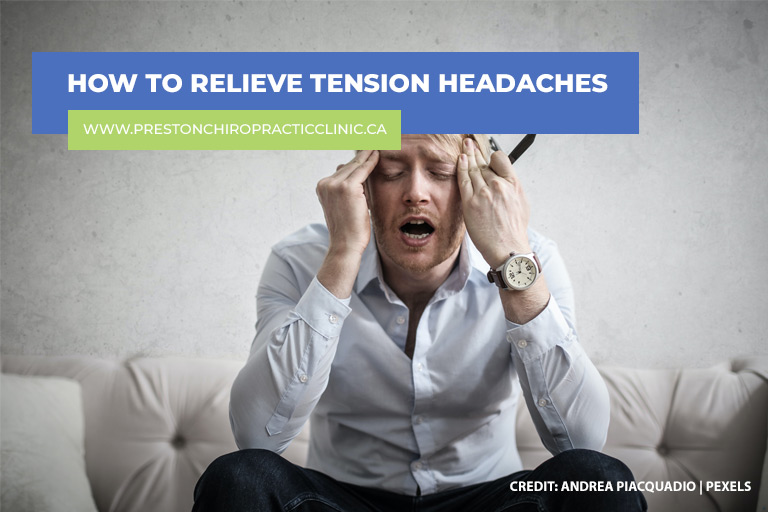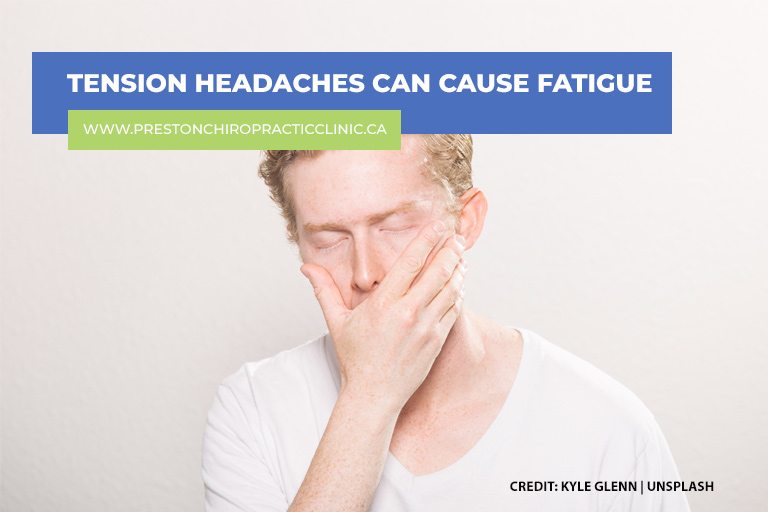
How to Relieve Tension Headaches
Tension headaches, widely recognized for their severe discomfort, are the most commonly occurring headache type. These headaches usually manifest during the afternoon and produce a mild to moderate pain sensation resembling pressure or a dull tightness around the head. They are triggered by strained or stressed neck, shoulder, and scalp muscles, leading to their alternate name, “stress headaches”. In adults, tension headaches are the prevailing and most frequent form of headache.
Thankfully, there are remedies for tension headaches. Successfully managing this type of headache usually involves maintaining a balance between adopting healthy habits, exploring effective non-drug options, and following the prescribed medications. Keep these strategies in mind so that the next time you ask how you get a tension headache to go away, you’ll know how to effectively handle and manage them.
What Are Tension Headaches?
A tension headache is the most common type of headache. It can manifest as a tight band around the forehead, accompanied by mild to intense pain behind the eyes and in the head and neck region.
How long do tension headaches last? The duration of these headaches can vary widely from person to person. The majority of individuals experiencing tension headaches encounter them occasionally, while some suffer from them more frequently.
Tension headaches are categorized into 2 types:
- Episodic Tension Headache
Episodic tension headaches can persist for a duration of 30 minutes to a week. Frequent episodic tension headaches occur less than 15 days per month, for at least 3 months. In some cases, these frequent episodes might progress into chronic tension headaches. Typically, this type of headache begins gradually during the afternoon.
- Chronic Tension Headache
Chronic tension headaches can last for hours and may even be continuous. These headaches occur on more than 15 days per month, lasting for at least 3 months. Compared to episodic tension headaches, chronic tension headaches are characterized by more intense pain, which might gradually improve throughout the day.
Symptoms of Tension Headaches

Common tension headaches symptoms consist of:
- A feeling of pressure or mild to moderate discomfort in the front, top, or sides of the head
- Difficulty concentrating or focusing
- Irritability
- Onset of the headache later in the day
- Difficulty sleeping
- Slight sensitivity to light or noise
- Fatigue
- Muscle soreness in the neck, shoulders, and scalp
- No nausea or vomiting with the symptoms mentioned
The pain associated with these symptoms is typically of mild to moderate intensity.
Causes of Tension Headaches
Although tension headaches are the most prevalent type of headache, what causes tension headaches remains unclear today. What’s clear is that there is no singular factor responsible for this type of headache:
- The precise cause of tension headaches continues to puzzle medical professionals and researchers. Sometimes, these headaches are associated with tense muscles in the neck and head or poor posture.
- Recent research suggests that hyperexcitable peripheral afferent neurons could be responsible for infrequent tension headaches. These specific neurons transmit sensory information from pain receptors in the body to the brain. Frequent tension-type headaches might be related to issues in your central pain processing, leading to heightened sensitivity to pain in general.
- Additionally, your genetic composition may play a role in determining your susceptibility to tension headaches.
Triggers for tension headaches encompass various factors such as stress, eye strain, dry eyes, alcohol consumption, fatigue, smoking, exposure to cold, caffeine consumption, poor posture, dehydration, lack of sleep, and skipping meals
How to Relieve Tension Headaches

Many people are well-acquainted with the discomfort brought on by tension-type headaches. Even when the pain strikes, life carries on. While medications can alleviate the pain, taking care of oneself may suffice to prevent headaches. Here are some tension headaches remedies:
- Stay Hydrated
Dehydration might be the cause of your tension headache. To address the potential link between dehydration and tension headaches, it’s important to act by increasing your water intake. Proper hydration is essential for relieving tension and promoting overall health.
- Manage Stress
Try to avoid or limit exposure to stressful situations. Incorporate daily relaxation techniques or activities to unwind. Regular practice of physical and psychological relaxation therapies can effectively mitigate the occurrence of tension headaches.
- Rest Well
It’s important to limit excessive phone and computer use to prevent eye and muscle strain. Additionally, taking frequent breaks while travelling is recommended to avoid tension build-up, promoting relaxation and reducing the risk of developing tension headaches.
- Have a Good Sleep
Establish a consistent sleep schedule, even on weekends. Engage in relaxing activities before bedtime. If you have trouble falling asleep, avoid prescription drugs with stimulants that can interfere with sleep. Addressing sleep apnea is crucial, especially if you experience morning headaches.
- Maintain Correct Posture
Poor posture can lead to tension headaches by causing tension in the upper back, neck, and shoulders. Correct posture and ergonomic adjustments before engaging in other activities can reduce headaches.
- Stay Active
Exercise releases chemicals that block pain signals in the brain. Choose enjoyable exercises and discuss them with your healthcare provider. Start slowly to avoid triggering headaches from excessive exertion.
- Quit Smoking
Smoking lowers blood flow to the brain due to nicotine and affects throat nerves, potentially leading to headaches. The compromised blood circulation and nerve reactions increase the likelihood of developing headache symptoms as a consequence of smoking.
- Seek Medical Help
For some individuals, sensitive trigger points at the back of the neck or in the shoulders can cause tension headaches. Injecting a local anaesthetic into these areas might relieve discomfort and prevent future headaches. There are also various medications that can help prevent tension headaches if non-drug approaches do not provide adequate relief. Consult your doctor about the best treatment options for you.
- Get Adjusted
Tension headaches can be triggered by various factors, including stress, whiplash, anxiety, depression, and activities causing muscle tension in the head, scalp, and neck. Individuals experiencing these headaches may feel muscle tightness in these areas. Chiropractors can identify tension headaches based on symptoms such as light sensitivity, visual disturbances, limited neck movement, and tense neck muscles. Through manual cervical adjustments, they can regulate peripheral nerve function and relieve the triggers that can cause headaches.
Tension headaches extend beyond being a mere health issue. They significantly impact your mental, emotional, social, and financial well-being. Don’t let them disrupt your daily life. Consider seeking help from a chiropractor in Cambridge at Preston Chiropractic & Physiotherapy Clinic, where therapeutic exercises are available to address your needs. Schedule an appointment today to get the treatment you need. Call us at (519) 653-7139!
BY: PrestonchroAdmin
Blog
COMMENTS: No Comments
